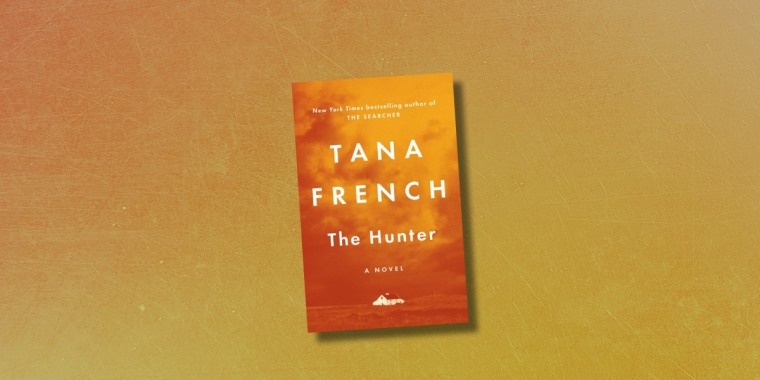For her next novel, Tana French is returning to the west of Ireland.
French, known for her Dublin Murder Squad mystery series, traded in the grit of the police procedural for a seemingly friendlier kind of mystery starting with her 2020 novel, "The Searcher."
Like books in the cozy mystery genre, these novels are set in a small town — but there's a dark underbelly to the close-knit relationships of Ardnakelty, who don't take to newcomers warmly or easily.
"The Searcher" follows what happens when Cal Hooper, a Chicago policeman, retires to the small village and befriends a young local. On sale March 5, 2024, "The Hunter" picks up on Cal Hooper and Trey Reddy's story where "The Searcher" leaves off.
"It’s been two years since 'Searcher', and Cal, Trey, and Lena have built up a good, happy life — but then Trey’s absent father comes home, and he’s brought along an English millionaire, a big plan to make the whole townland rich, and a whole lot of trouble. It’s got plenty of Western elements — everything from revenge to a (very small) gold rush," French tells TODAY.com.
The book is about revenge, the lengths we'll go for loved ones and what happens when the two collide. Below, French answered a few of our questions about her next book.
Why did you choose to focus, again, on the world of Cal and Trey?
I wasn’t planning to — I thought "Searcher" was a standalone — but it felt like there was more to their story. At the end of "Searcher", I left Cal and Trey at a point where their relationship, and Cal’s relationship with the village, were just starting to find some kind of shape and solidity — but they were still fragile; there were still plenty of loose ends and shaky places. I wanted to see what would happen if something came along to rock their balance, down the line.
What can readers expect from this next chapter in their story? Is it another 'Irish Western' – and do you agree with that description?
"Irish Western" is the perfect description. There are a lot of resonances between the Western and Irish literature; Ireland has a lot of books and plays showing our rural societies as places so far removed from the centers of power, both geographically and culturally, that people feel like the power-brokers don’t have a clue about them and don’t care, and if they want a functioning community, they need to make and enforce their own rules. That’s Western territory. I liked the idea of writing a book that highlighted those links. And yes, "The Hunter" definitely fits in there too.
How does writing about a small Irish town compare to your Dublin Murder Squad series? What are the particular challenges and delights?
I love writing about the landscape of the west of Ireland. It’s stunningly beautiful, in a very different way from the east, where I live — wilder, fiercer, more powerful. I’ll never be able to do it justice, but I love trying. And I also like writing about small-town life. In a big city, you can keep yourself basically isolated from your neighbors, if that’s what you want: just don’t talk to people, keep your music down, and don’t let your dog bark, and you’re pretty much there.
In a small town, that’s not an option. What you do has an impact on the community, whether you want it to or not, and everyone knows everyone’s business. You’re intertwined with the place. That’s fascinating to write.
What questions do you hope people ask themselves while reading 'The Hunter'?
It’s a book about revenge in its various forms, but it’s also a book about families — both the ones we’re born with and the ones we forge for ourselves — and about how far we’ll go, what we’ll sacrifice, for our loved ones. I guess I hope it might give readers new angles on those things. And, like every author, I’d love readers to go away wondering what the characters do next.
You said The Searcher was “less depressing” than past books — would you say “The Hunter” is, too?
Oh, yeah, it’s less depressing than a lot of mine. The main characters aren’t destroying things, or being destroyed, like some of my other main characters have been. They’re building things: relationships, bonds. Even if they run into trouble and make mistakes along the way, the importance they place on those relationships keeps them pointed in a good direction in the long run.
After reading all of your books, do you expect readers could become good detective? Are you one by now?
I’d make a terrible detective! I’d be paralyzed by how high the stakes are. As a writer, if I have a day when I’m bad at my job, I end up with too many adjectives. If a detective has a day like that, he or she could get someone killed. I couldn’t handle that thought. It’s one thing to know how an investigation works and how to go about the process — and at this stage I know a fair bit about that — but detectives need a kind of ruthlessness, with themselves and with other people, that not everyone has.
